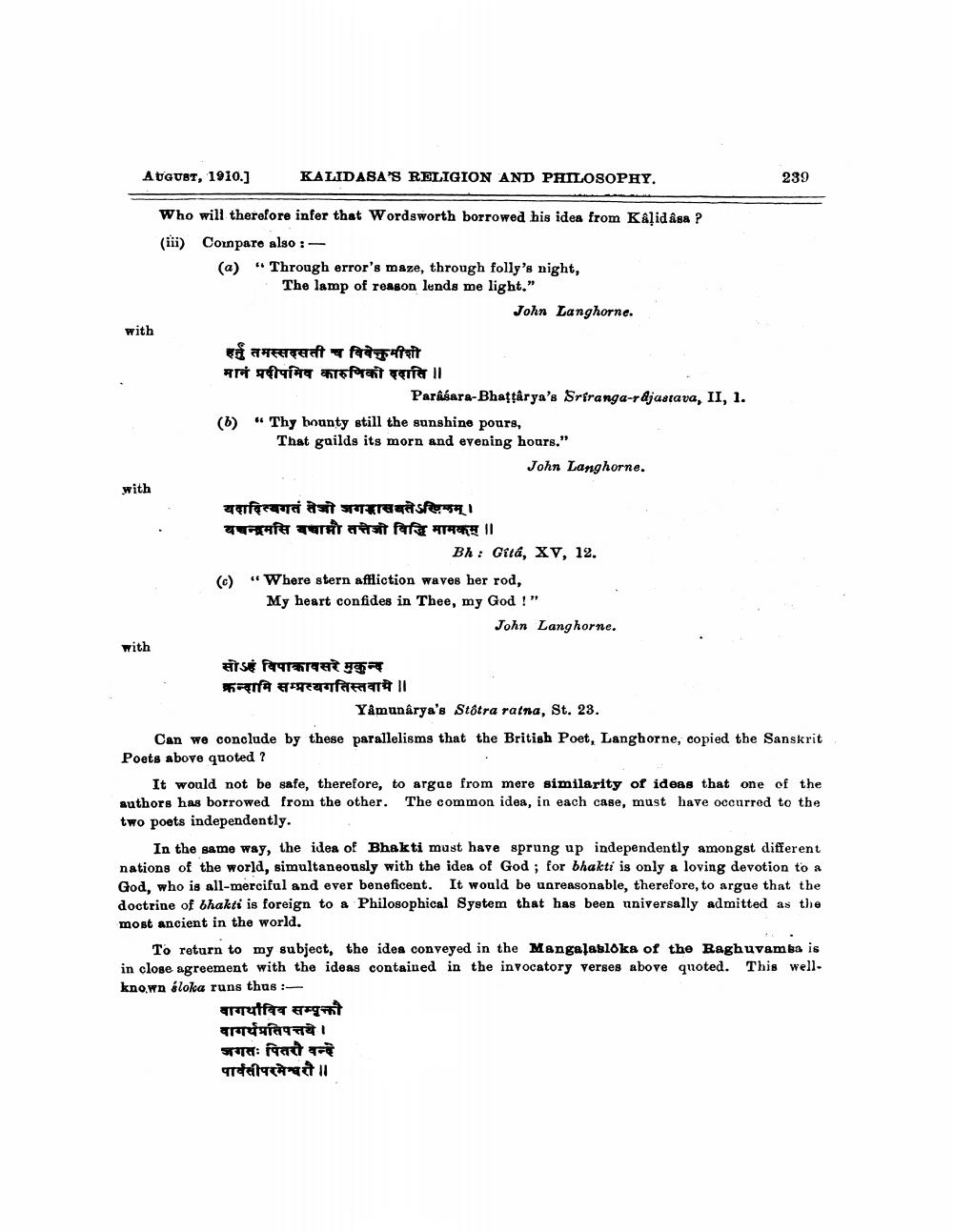________________
AUGUST, 1910.]
KALIDASA'S RELIGION AND PHILOSOPHY.
Who will therefore infer that Wordsworth borrowed his idea from Kâlidâsa ?
(iii) Compare also :
with
with
with
(a) Through error's maze, through folly's night, The lamp of reason lends me light."
64
हर्तुं तमस्सदसती च विवेक्तुमीशी
मानं प्रदीपमिव कारुणिको ददाति ॥
(b) Thy bounty still the sunshine pours, That guilds its morn and evening hours." John Langhorne.
यदादित्यगतं तेजो जगहासबतेऽखिनम् । यचन्द्रमसि यच्चानौ तत्तेजो विद्धि मामकम् ||
John Langhorne.
Parâsara-Bhattârya's Sriranga-rajastava, II, 1.
सोऽहं विपाकावसरे मुकुन्द क्रन्दामि सम्प्रत्यगतिस्तवामे ॥
(c) "Where stern affliction waves her rod, My heart confides in Thee, my God!"
Bh: Gita, XV, 12.
John Langhorne.
वागर्थाविव सम्पृक्तौ
वागर्थप्रतिपत्तये । जगतः पितरौ वन्दे पार्वतीपरमेश्वरौ ॥
Yamunarya's Stotra ratna, St. 23.
239
Can we conclude by these parallelisms that the British Poet, Langhorne, copied the Sanskrit Poets above quoted?
It would not be safe, therefore, to argue from mere similarity of ideas that one of the authors has borrowed from the other. The common idea, in each case, must have occurred to the two poets independently.
In the same way, the idea of Bhakti must have sprung up independently amongst different nations of the world, simultaneously with the idea of God; for bhakti is only a loving devotion to a God, who is all-merciful and ever beneficent. It would be unreasonable, therefore, to argue that the doctrine of bhakti is foreign to a Philosophical System that has been universally admitted as the most ancient in the world.
To return to my subject, the idea conveyed in the Mangalasloka of the Raghuvamsa is in close agreement with the ideas contained in the invocatory verses above quoted. This wellknown sloka runs thus :




